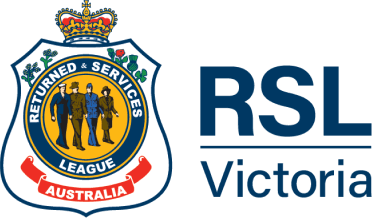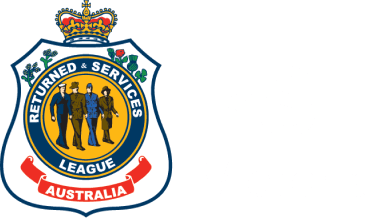After travelling 50,000 kilometres, the Legacy Centenary Torch has reached Melbourne’s Shrine of Remembrance.
The Legacy Centenary Torch Relay began in the lead up to ANZAC Day this year in Pozieres, France, before it travelled to London, England, followed by a national tour of Australia.
It’s been part of a six-month campaign to acknowledge veterans’ families and mark the ex-service organisation’s 100 years.
Born out of some of the world’s most challenging times, returning soldier Lieutenant General Sir Stanley Savige established Legacy in Melbourne in 1923.
Legacy was founded on a promise made from one digger to another – to “look after the missus and the kids.”
Only as an adult did Peter Corfield appreciate the support Legacy gave to his mother’s good friend.
Betty Young was a war widow, having lost her husband in the 1950s whilst in Hong Kong. She returned to Australia with her two young boys.
“Legacy stepped in and helped her. I was pretty close to Betty and I knew she was very grateful to Legacy and what they did for her,” said Peter.
Betty was actively involved in Melbourne Legacy for many years, and despite her deteriorating health, she was only prepared to forgo some of her volunteering roles on one condition.
"She said, ‘if someone was prepared to join Legacy and get involved, I’d seriously consider backing down'"
Peter Corfield
That someone was Peter, who stepped up as a Legacy volunteer, known as a Legatee.
“I got actively involved in our branch, then I started going to the comradeship lunches and before I knew it, I was asked if I could join the Personnel Committee. Within a couple of months of that, I was asked if I would consider chairing it, which I did for five years.”
Having grown up in a family with strong military ties, Peter has combined two of his passions, not only as a Legatee, but also as the Welfare Officer at the Beaumaris RSL Sub-Branch.
Peter remembered his mother saying The British Legion, the equivalent of the RSL, was very good to their family.

It was only natural then that Peter’s father, who served in WW2, joined his local RSL when they immigrated to Australia in 1962.
When Peter turned 21 in 1969, he was gifted RSL membership by a WW2 veteran friend and has made the most of his connection to the RSL ever since. Over the last number of years, Peter has thoroughly enjoyed combining his volunteer work for both Legacy and the RSL.
Like Peter, Melbourne Legacy President Kerry Jenke is equally passionate about the work of the organisation, having received its support.
Kerry’s father fought in Africa and New Guinea and returned traumatized from his experiences.
“He came back and dealt with his problems with alcohol. Alcohol meant deprivation for the whole family and it also meant an unpleasant environment.”
“All of his money went on alcohol. My mother was able to get cleaning jobs and those sorts of things, which meant that we were alone and in a family impacted by violence.”
She said Legatees inserted themselves in loco parentis.
“The carer of the family was just thinking about survival – where’s the next meal coming from? How do I stop the children being impacted? How do we pay the bills? Dad was in his own world, and it was a horrible world that he lived in. It took others to step in and, my gosh, they did.”
Kerry’s mother became eligible for Legacy support when her father died.
“I don’t think I would’ve had shoes and socks or books or uniforms, all those sorts of things otherwise!”
Kerry said she is proud of Legacy’s work, which focuses on relieving financial hardship, delivering social connection services and providing developmental opportunities.
While the core work of Legacy has remained the same, it has evolved in its 100 years to meet the needs of contemporary veteran families and deliver a more modern approach in its support.
Kerry said when Legacy started, there was little recognition about the impact of trauma on families.
Now, with more research into the area and a greater understanding of the impacts of Post Traumatic Stress Disorder (PTSD), ESOs like Legacy have been able to broaden and change their approach.
"We can do a lot more these days. It was once the case that Legatees did a lot of work with families, but today we also have professional staff to support families. We now work with the veteran in the family so he or she can work through their trauma with their children, with their partner."
Kerry Jenke
100 years on, it is timely to reflect on Legacy’s origins, its founders and the significant role it has played over a century.
“The fact that we still need an organisation like ours 100 years after it started, you know, we were formed between the two wars and you think in this day and age, do we need that? We do. There’s still a real need. I am so proud we have done this for 100 years,” said Kerry.
Kerry and Peter hope their stories will inspire others to seek support, or volunteer so Legacy can live on.

